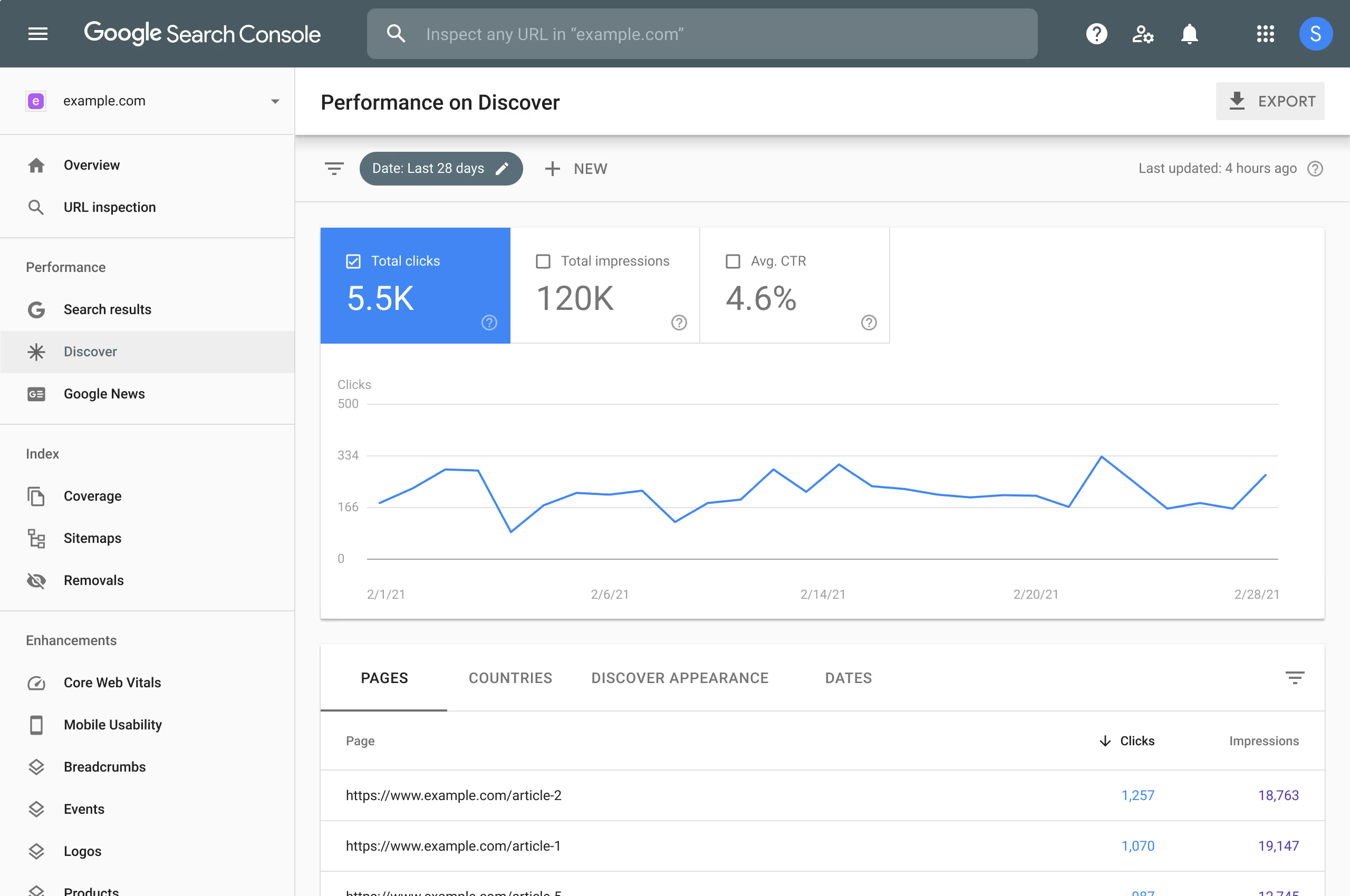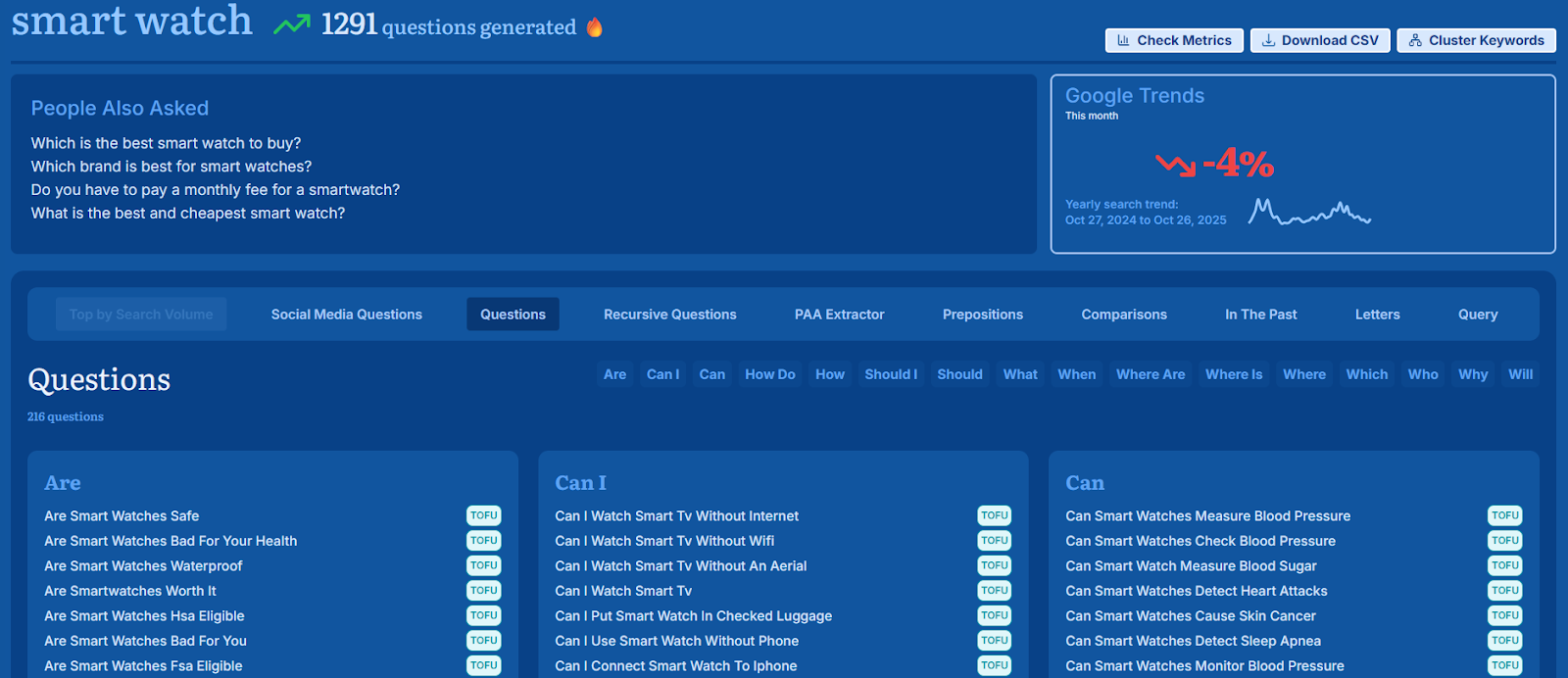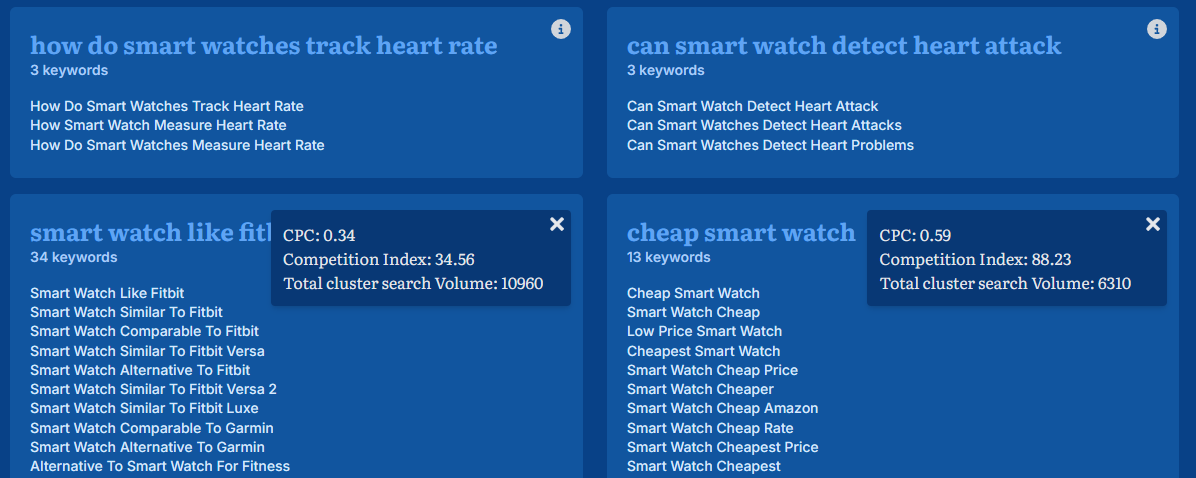Ranking in the top spot on search engines without help can take some doing.
While SEO tools can certainly come in handy, you may not be willing to pay for them just yet.
Fortunately, there are plenty of reliable free SEO tools available that can be just as effective.
The best SEO tools can help you tackle on-page and technical SEO tasks, including keyword research, content audits, link building, and competitive monitoring.
Here is a list of 23 of the best free SEO tools to help your website improve search rankings and maximize organic traffic.
1. Google Search Console

Google Search Console has a unique advantage over other SEO tools since it relies on data from Google itself.
Therefore, GSC is more reliable compared to other tools.
Search Console offers a range of features, including the ability to submit sitemaps for your website, stay updated on security issues, and track your search engine results within the Performance tab.
The search results panel provides data on the number of clicks and impressions your website has received over a specific period.
It can help you identify the most popular pages of your site and which keywords you're ranking for.
You can also edit the filters to see how you can improve certain pages and target additional keywords that you can rank for with ease.
The queries panel for example reveals all the search terms that your pages are ranking for. You can use these as seed keywords to uncover related terms.
If you are just starting out in SEO, Google Search Console should be the first free SEO tool on your list.
Master the search results report inside the Performance tab, and you won't need keyword research tools for the first few months.
It's also a good idea to set up Bing's version of GSC, called Bing Webmaster tools for your website.
2. Ubersuggest

Ubersuggest offers a host of features including site audits, competitor analysis, and backlink overview tools.
However, it is best known for its keyword research tools.
The Keyword Overview feature can be used to get a detailed analysis of your particular keyword, including its search volume, keyword or PPC difficulty, and average cost-per-click (CPC).
Other tools like Keyword Ideas, Keywords by Traffic, Similar Websites, and Content Ideas can help aid your keyword research and generate new blog post ideas.
The Similar Websites dashboard can help you discover other relevant search queries to target and keep an eye on your competitors' activities.
Keep in mind that the free plan only allows a limited number of daily searches, so use them wisely.
As far as free keyword research tools go, UberSuggest's free SEO tools are a good alternative to more expensive paid SEO tools.
3. Keyword Surfer

Keyword Surfer is a Chrome extension that smoothly integrates with your browser, offering convenient insights into your search queries directly in your search results without the need to jump between different pages.
When you run a search query, you find your keyword's monthly search volume and CPC.

To the right of your screen, Keyword Surfer lists out other relevant queries you can potentially target.
Alongside each suggestion, you'll find the overlap percentage, which shows how closely related it is to your original keyword and the average monthly search volume in your country, giving you an idea of its relevance and popularity.

You can pick keywords that seem promising and add them to a Collection, which you can then download as a CSV for further research.

Keyword Surfer also displays the monthly traffic of each site in the search results, the number of words on each page, and the frequency of your searched keyword in the content.
You'll find these insights right under the meta title.
For example, the first number is the estimated monthly traffic for the entire domain, followed by the word count of the article and the number of times your search query appears on the page.
Title changed refers to whether Google changed the page's meta title to something it deems more relevant.

All of this is accessible right from the search engine results page with Keyword Surfer. It's a handy SEO Chrome extension but won't clutter your page or slow down your experience.
4. Answer Socrates
Answer Socrates helps you find hundreds of questions that people are actually asking about your topic, so you can create content that engages readers and ranks organically.

Just enter a seed keyword (2-3 words is best) and Answer Socrates gives you a comprehensive question list, all categorized by question type, prepositions, comparisons, etc.
You can export the full list from here or add recursive questions (the things people search for after your main keyword). This adds greater depth and breadth to your keyword list—ideal for building topical authority.
Every keyword is labeled as TOFU/MOFU/BOFU, which is helpful for understanding search intent and making sure your content is tailored to the correct stage of the buyer’s journey. Answer Socrates also has a keyword clustering feature that sorts your keyword list into semantically-related groups, showing you which ones belong together in each article you’re writing.

You can view the search volume, CPC, and competition index for each cluster on-screen. Or, download the CSV report to view this data for each cluster and individual keyword.
With Answer Socrates’ free plan, you can cluster up to 1,500 keywords per month and perform 3 keyword searches per day (including PAA search). For higher volumes, paid plans start from $9/month.
5. Answer the Public

AnswerthePublic is a handy tool for generating hundreds of new content ideas.
AnswerThePublic uses autocomplete data from search engines to generate relevant phrases and questions people are asking about your keyword.
To get started, simply enter your target keyword, and AnswerthePublic will generate a detailed visualization of keyword suggestions that you can target.
You can filter between these based on whether the queries are questions, prepositions, or comparisons.
These are also color-coded based on the number of average searches each query attracts each month, so you know which keywords are worth targeting right off the bat.
The tool is fantastic if you're planning out content clusters for your website. But keep in mind that detailed metrics for each search term are only available with the paid plan.
6. Google Analytics 4

With Google Analytics 4 (GA4), you can stay informed about key metrics related to your site. Keep track of how much traffic you're getting and other information regarding your visitors, such as their demographics, behaviors, and the devices they use.
By using event-based tracking features, such as capturing visitor actions like button clicks, page views, and form submissions, you can optimize your site to retain visitors.
GA4 also uses AI features to give you predictions on your site's performance, like estimating the chances of previous visitors not returning, their probability of making a purchase, and the odds of converting an active visitor into a customer.
The data comes from Google, so consider GA4 a must free tool for SEO.
7. Soovle

Soovle might look a bit dated, but don't let that fool you into thinking it's ineffective.
Simply entering a keyword unlocks a wealth of related search queries that you can use to come up with new content ideas.
Put your keyword in the search bar, and Soovle will list out other relevant queries on platforms like Google, Bing, YouTube, Amazon, and more.
While it may not offer the metrics that more sophisticated keyword research tools are known for (keyword difficulty, monthly search traffic, etc.), it can still be great if you're looking for a simple, no-fuss platform that gets the job done.
8. Grammarly

It's no secret that grammar and quality play an important role in your content's credibility, and ensuring it's error-free is just one of the factors that contribute to this.
Grammarly is a free Chrome extension that helps keep your content free from any grammatical errors and makes sure it reads well.
Once installed, the software integrates directly with your writing software, correcting errors in real time.
Or, you can write directly in the Grammarly editor and tailor it according to your tone and target audience.
This will give the tool some background that it can use to offer suggestions on sentence structure and give your content an overall score.
9. Hemingway Editor

Hemingway Editor is quite possibly the best free tool to help ensure your content is readable and easy to understand for the average reader.
These are important considerations if you want to bring down your bounce rate and keep visitors on the page longer.
Hemingway will highlight your text in various colors to indicate which sections could use some improvement.
For example, a yellow highlight means that your sentence is somewhat hard to follow, while a red highlight means the text is very difficult to read.
The editor also gives your content a grade based on its reading level. Generally, grades between 6 and 8 indicate that your content has the best readability.
10. Yoast SEO

Yoast SEO is another free SEO tool that analyzes your content and provides relevant insights into what can be improved to make it more search-engine-friendly.
You can either install the WordPress plugin to use it or go directly to their website.
The SEO checklist lets you know what you've done right with the content and what is lacking.
These include information on whether you have included internal or external links, images, your target keyword, a good meta description, and other SEO practices.
Besides that, the tool also assesses your text, giving it a readability score and providing other tips on what else you might need to edit to ensure search engine optimization.
11. Serprobot

Serprobot is a rank tracking tool that can help you know which keywords on your site are performing and which aren't.
To get started, you only have to enter your site's domain and the keywords you would like to search for.
Serpobot allows you to filter by region and device. So, for instance, if you want to search for a keyword's position in the UK on a mobile device, you can do so.
You can search up to five keywords at a time, making the process considerably quicker than if you were to look up each keyword manually.
12. MozBar

MozBar is a free SEO Chrome extension that provides metrics on some of the ranking pages on your SERP.
Once installed, it will display a particular site's Domain Authority and Page Authority.
Page Authority (PA) determines how well a specific page may rank in search engine result pages, while Domain Authority (DA) measures the overall ranking strength of an entire domain.
These can give you a general idea of the competition for a particular keyword and whether there is still potential for you to rank.
MozBar also provides information on the number of backlinks a page has.
13. Ahrefs Backlink Checker

Ahrefs Backlink Checker is a free SEO tool that provides an overview of the backlinks, the number of distinct linking websites, and the overall domain rating of any particular site.
Besides this, you can see the referring pages, the anchor text, and the target URLs of a website's top 100 backlinks.
There aren't too many free link tools, so Ahrefs is a quality option, especially if you're just starting out or have a relatively smaller website.
This can be a great link-building tool for analyzing competitors and spotting sites that are good for your own link-building efforts.
14. Sitechecker

Sitechecker is an audit tool that crawls your website to identify over 300 potential SEO issues that could impact your rankings, such as broken links, redirects, HTTP status codes, 404 pages, slow speeds, and technical SEO.
You can choose to get your whole site checked or just a particular page.
The tool then provides a detailed report showcasing specific areas that could use some improvement. You can look these over to make informed decisions.
Sitechcker is a powerful SEO audit tool but you will need to create a free account to audit your entire website.
15. Pagespeed Insights

Pagespeed Insights is a Google-offered service that analyzes your site's performance for both desktop and mobile devices.
The tool rates your site up to 100—the higher the score, the better your site is optimized for search engines.
Plus, it checks how accessible your site is and whether it ticks off the basic SEO boxes.
But that's not it; you can also see actionable insights into what you can do to bring up your score.

Scroll down to the relevant section and go through the various 'Opportunities' listed to get an idea of which improvements you can put into practice.
16. Mobile-Friendly Test

Mobile-Friendly Test is fairly self-explanatory—it measures how well your site is optimized for mobile devices.
Enter your URL and click 'Start Test', and the tool will give your site a score percentage, determining how compatible it is with mobile phones.
17. GTMetrix

GTmetrix is a performance analysis tool that evaluates the speed and overall user experience of a website.
Similar to Google PageSpeed Insights, it provides insights into how well a webpage performs, but it uses a combination of Google Lighthouse (which powers PageSpeed Insights) and its own analysis.
Once you run a test, GTMetrix provides a detailed report on how well your site runs and what you can do to improve it.
GTMetrix depicts your page's loading in a unique waterfall report but requires you to sign in with a free account.
18. Google Trends

Google Trends shows the popularity of different search terms over time.
You can use it as a keyword research tool to determine if a query is worth going after.
And since the data comes directly from Google, you can rest assured that the information is reliable, which is not always true with other free SEO tools.
You can explore the changing popularity of a search term within a specific country over a selected time frame. It also allows you to find out where most of the searches came from and how many times the term was looked up.
Scroll down, and you can see other information on related topics and queries, along with percentages showing how their traffic compares to your initial keyword.
These are especially helpful because you can spot breakout trends and capitalize on them before others.

You can also add your own separate keyword or select from the suggestions to compare how its popularity has varied compared to your seed keyword.
19. Help a Reporter Out (HARO)

HARO, or Help a Reporter Out, does just what the name implies—it connects journalists who need information for their stories with experts who can help.
If you're one of those experts, you can score a link back to your website in exchange for sharing your knowledge in your field.
With HARO's diverse pool of reporters, you have the potential to be mentioned in reputable publications such as Forbes, The New York Times, and Bloomberg.
This can be a great method to bring in backlinks for your site from high-authority websites — given that you are knowledgeable and established in a particular field.
20. Google Keyword Planner

Google Keyword Planner can help you discover relevant keywords and check their search volume.
Although it is primarily aimed at finding keywords for paid Google Ads campaigns, you can also use it to find search queries that people are using.
Keyword Planner lets you target specific locations and languages and start generating keywords from seed keywords or using a website.
You can also plugin competitor websites to identify keywords they're popular for, and use them as ideas for your own content strategy.
21. ChatGPT

ChatGPT can be super flexible when it comes to being used as an SEO tool. Your use case will depend on how creative you can get.
Some of its highlights include writing titles and meta descriptions for your content. You can also use it for introductions and conclusions and to aid your research.
However, since ChatGPT is not a specialized SEO tool, you are better off using it to generate seed keywords and not relying on it for topical maps or keyword research.
However, ChatGPT is useful for writing content briefs and article outlines and can greatly reduce your effort and time there.
Just don't treat it as a dedicated SEO tool.
22. Localo

Localo is a local SEO tool that helps you improve your Google Business Profile and allows local businesses to rank in their specific areas.
It monitors your profile's visibility, analyzes your competition, and gives you tips on how to rank better in local searches.
You can also track your search rankings in nearby regions and take steps to ensure that your listing is optimized for SEO.
You can also automate writing Google posts, reviewing replies, and filling in details for your Google Business Profile with their AI feature.
23. Google Business Profile

A Google Business Profile puts your business on the map, quite literally. When people search for products or services in your area, your business shows up on Google Maps and in local search results.
You can use it to add details about your business, including working hours, contact information, and directions to your location.
It also provides a platform for customers to leave reviews, which can further improve your rankings and put you in the spotlight for other potential customers.
24. Whitespark Local Citation Finder

The Whitespark Local Citation Finder is a local SEO tool to help businesses find opportunities for local mentions.
It specializes in finding, managing, and building local citations, which can help put your business out there.
The tool scans the web to identify where a business is mentioned and suggests new citation opportunities by analyzing competitors and market trends.
Plus, if you have existing citations with outdated information, you can also update them using the tool.
Conclusion
While SEO tools like Surfer can take your content efforts to the next level, there are also several free Surfer alternatives that you don't need to buy a plan for.
These free SEO tools offer a wide range of functionalities to enhance your website's visibility.
From keyword research and content optimization to link building and performance analysis, they can help you rank higher in search results. As your website grows in traffic and revenue, you can move on from free tools to paying for SEO tools.






